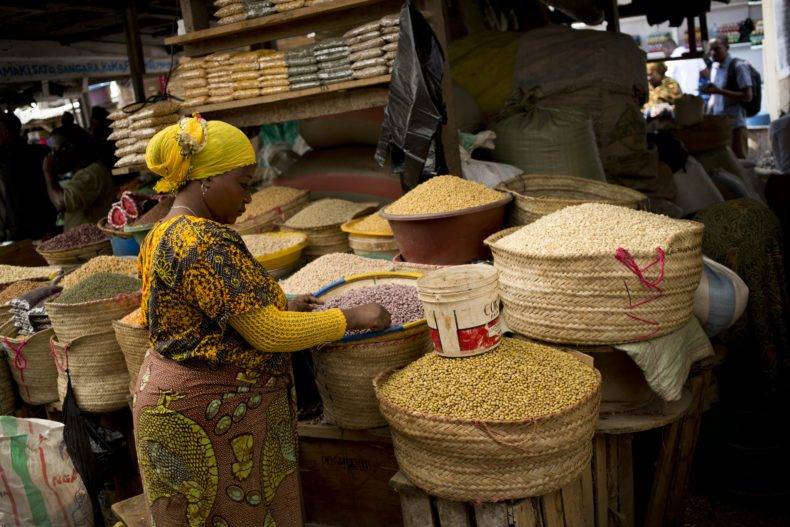Up And Up Goes Food Prices – Border Closure Yielding Opposite Effect As Nigeria’s Inflation Hit Highest In 17 Months

Food prices have been on the rise since the Nigerian government implemented a land border closure which shut off trade with neighbouring countries. And it looks like things are only getting worse.
The latest data from the National Bureau of Statistics (NBS) shows that Nigeria’s inflation rate rose to a 17-month high in October as food prices surged.
Consumer prices rose 11.6 percent from a year earlier compared with 11.2 percent in September, the NBS said in a report published on its Twitter account Monday.
That is the highest rate since May 2018 and exceeded the 11.2 percent median of five economist estimates in a Bloomberg survey. And this spike in the inflation rate (the highest in over a year) can be mostly attributed to the rise in the food costs — something that is not unconnected to the border closure which ironically was aimed at driving costs down through increased local production.
Food inflation quickened to 14.1 percent from 13.5 percent in September. That is the highest rate since April last year. Costs have been pushed up by the border closures that President Muhammadu Buhari ordered to curb smuggling of rice and other commodities.
Worse still, prices are likely to increase even faster in the next two months as consumer demand and spending rise over the yuletide season.
According to the NBS report, inflation rose by 0.37 percent points, higher than the 11.24 percent recorded in September and 11.02 percent for August 2019.
Similarly, food inflation rose to 14.09 percent compared to 13.51 percent in the previous month. Meanwhile, Core inflation dropped to 8.88 percent from 8.94 percent recorded in September 2019.
Featured Image Courtesy: agra.org